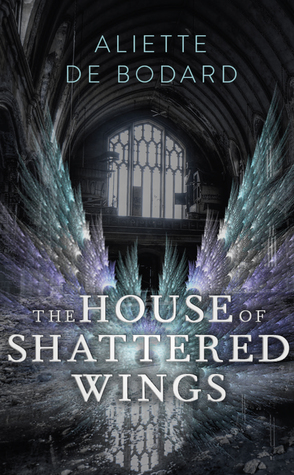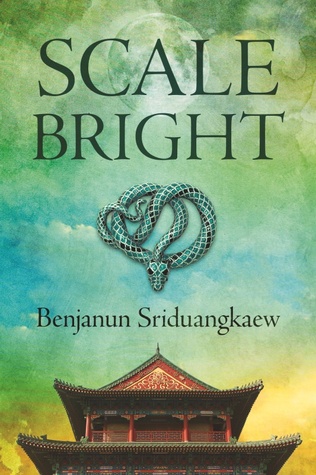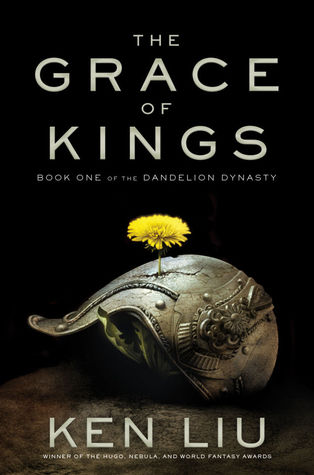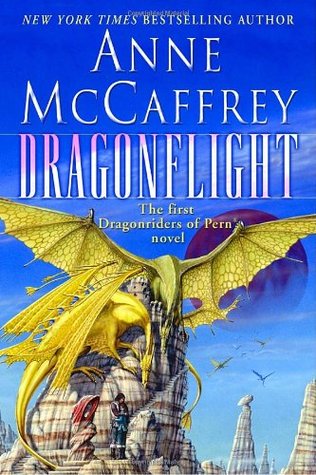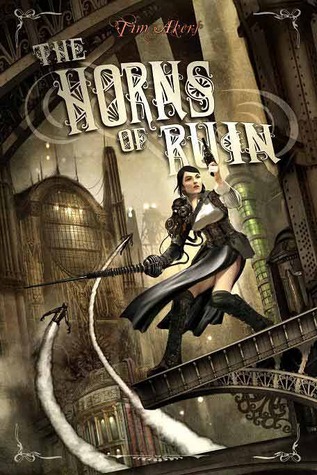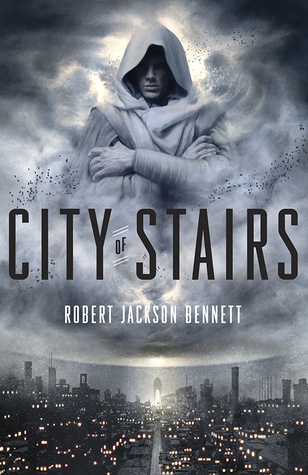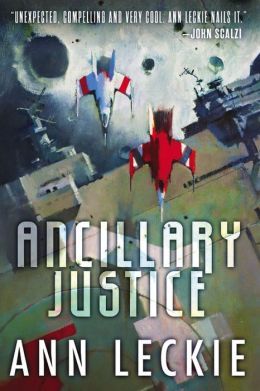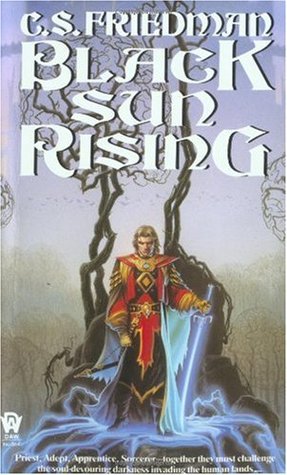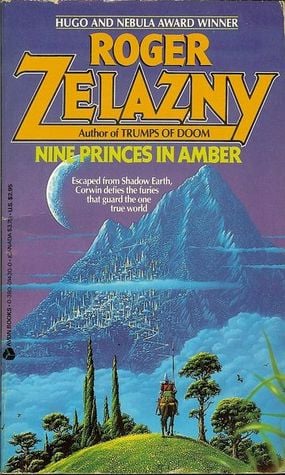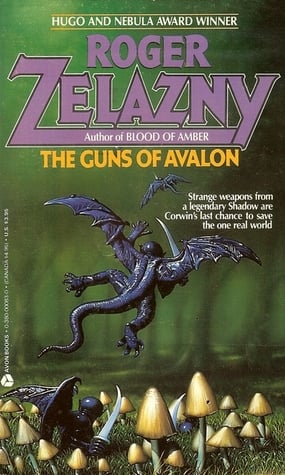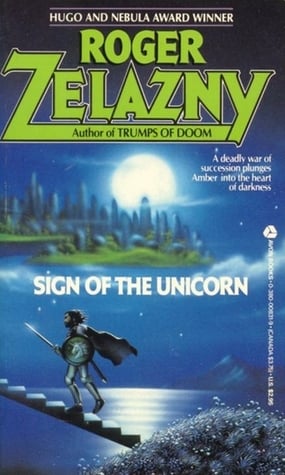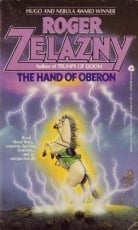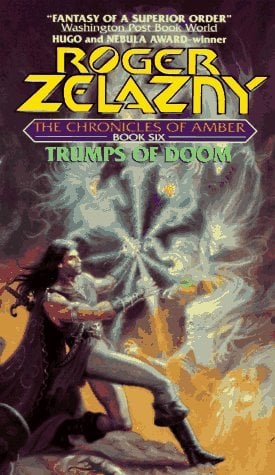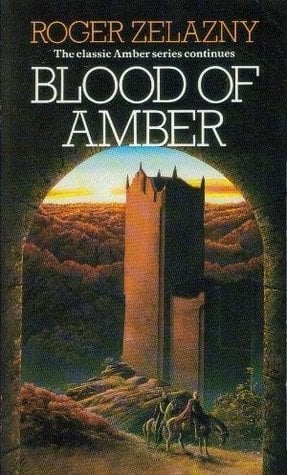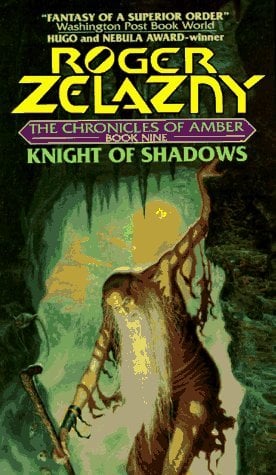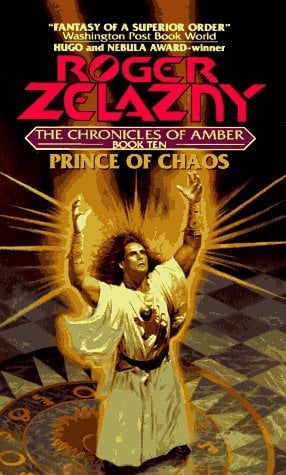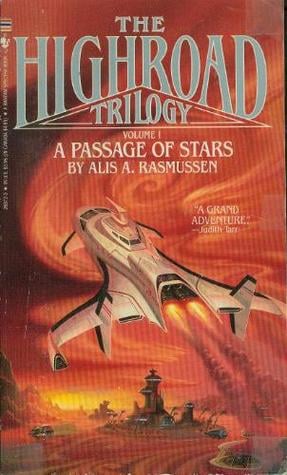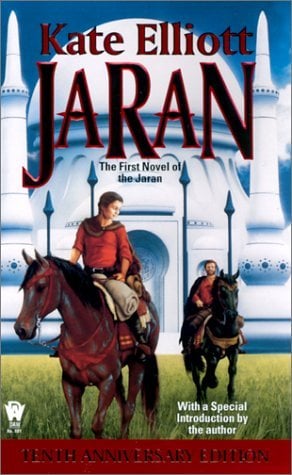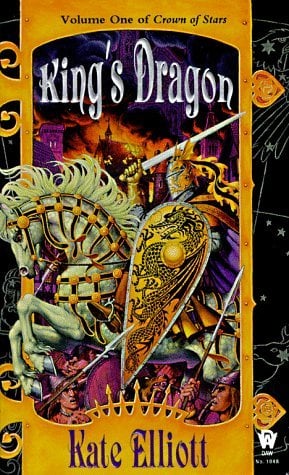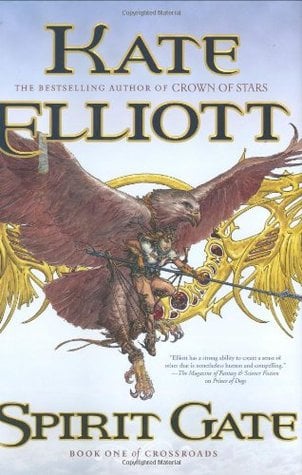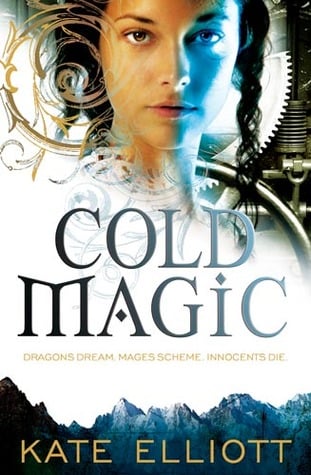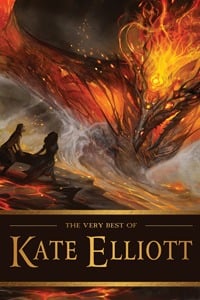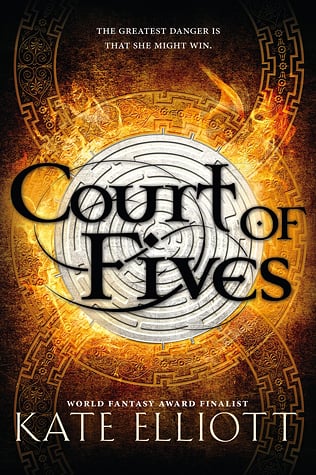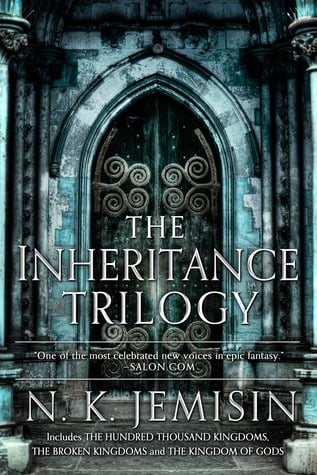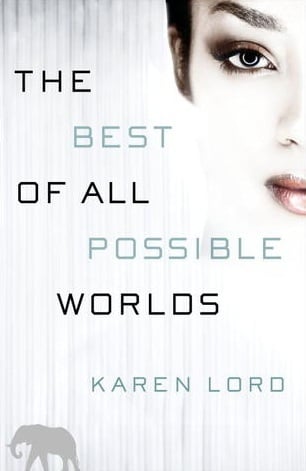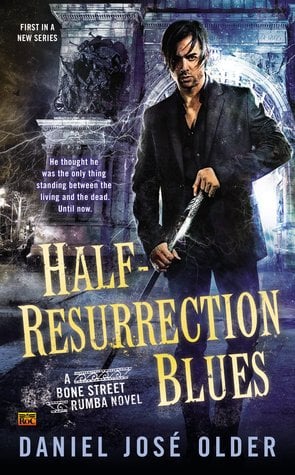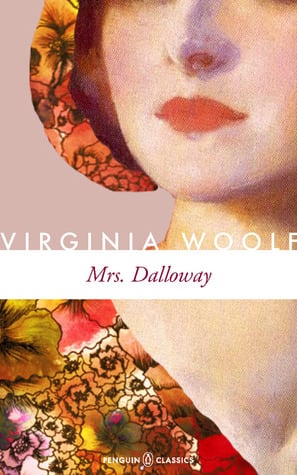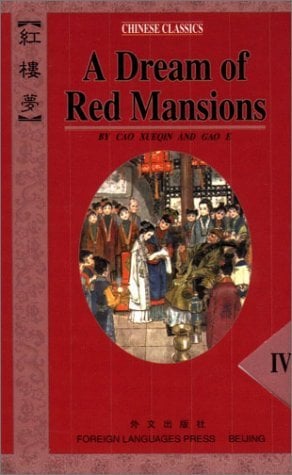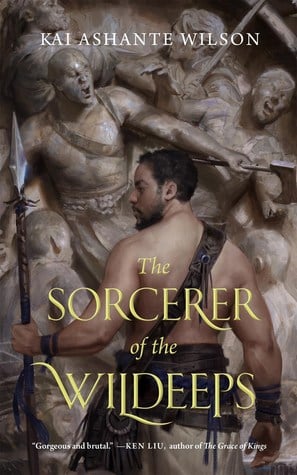Grace of Kings and other Narratives
This 4th (and antepenultimate) discussion of Grace of Kings with @afishtrap opens with the first chapter - an exotic parade of wonders. We use the parade as a jumping off point to talk about reader expectations of "oriental" narratives, and how these are handled in Grace of Kings, The House of Shattered Wings and Scale Bright. Our discussion also touches on the Single Story alluded to in Chimamanda Ngozi Adichie's TED talk and the weight placed on narratives by and about creators from other historically marginalized backgrounds. We also mention a few other authors & books telling their own stories, including Sorcerer to the Crown, The SEA Is Ours & poet Brian Thao Worra.
The episode concludes with an older book memory: All The Birds in the Sky, by Charlie Jane Anders, originally described in episode 6 by Aidan Moher & now actually in print.
The Dangers of a Single Book Cover from AfricaIsACountry.
You Don't Have to Write Autobiography by Ken Liu.
Aliette De Bodard on Colonialism, Evil Empires, and Oppressive Systems
This episode of Another Round with Anil Dash is not only well worth a listen but also includes a discussion of trying to get stories of the immigrant experience out of immigrant parents.
The amazing art which inspired me to actually get this project off the ground was created by@etrandem
Send feedback! Tweet me! Tweet the show! Be a guest on the show!
Music - Jazzy Ashes by The Underscore Orkestra
If you want to subscribe to the show, the RSS feed is: http://www.cabbagesandkings.audio/?format=rss
TRANSCRIPT (thanks to @afishtrap)
[music intro]
JSM: Welcome to Cabbages and Kings, a podcast for readers of science fiction and fantasy. I'm your host, Jonah Sutton-Morse. This episode continues my discussion on the Grace of Kings with A.Fishtrap. This time we're using the exotic and oriental parade of wonders that opens the novel, to talk about reader expectations and the weight of the single narrative, by and about historically-marginalized groups and creators. We're going to compare the approaches of Grace of Kings, House of Shattered Wings, which features an immigrant in the midst of ruined magical Paris, and Scale Bright, a modern urban fantasy set in Hong Kong full of demons and goddesses. Plot spoilers for Grace of Kings, much less so for the other two books. We'll kick off this fourth and-- I think-- antepenultimate episode discussing Grace of Kings with promises made to the reader, and the beginning of the book.
[music]
JSM: Chapter 1 opens with a parade of wonders. We know that we are in the seventh month of the fourteenth year of the reign of One Bright Heaven. I think that doing a sort of month-and-year based on the reign of a name like ‘One Bright Heaven’, conjures to me an Eastern imperial setting.
AFT: Yeah, the year and the reign is really what did it for me, because Western tends to go by the christian calendar?
JSM: And also, from the reign of a certain king, but this is not Louis the Fifteenth.
AFT: [laugh]
JSM: This is One Bright Heaven. It's almost immediate, third paragraph, they're here for the imperial procession. Uh, we have a fleet of giant imperial airships, battle-carts with oxenu[?] draped from the stone-throwing arms, engineers spraying water from ice wagons, we have...
AFT: Elephants.
JSM: Elephants... Ah, you've skipped over the maidens gyrating seductively!
AFT: Yeah, that's.. that's...
JSM: Sword-twirlers... that wasn't the part that you were really excited about? The elephants?
AFT: Well, I like elephants.
JSM: Yeah.
AFT: Who doesn't like elephants? Actually, that part about the maidens who gyrated seductively-- kinda made me laugh, because I saw so many things on twitter where people are like, "Auh, the dancing girls, why is it always, blah blah blah", and I'm like, uh, you haven't actually watched any wuxia, have you. You'll have dancing girls who are fully clothed. [laughs] Like, we have a slightly different measure. I mean, that's so par for the course with wuxia that I was just like, yeah, yeah, okay.
JSM: After that, we get a composition by the great imperial scholar, which happens to also tell us what all of our kingdoms are.
AFT: Mm-hnh.
JSM: Decorative knots, meant to evoke logograms for prosperity and luck...
AFT: Mm-hnh. We get the long silk banners embroidered with scenes... That silk, right there, is also an indication, as opposed to, say, wool!
JSM: Mm-hmm.
AFT: Linen.
JSM: Then we get the emperor.
AFT: In his pagoda.
JSM: I missed that, yes.
AFT: The only mention in the entire book of a pagoda. It's also the only place there are gyrating dancing girls.
JSM: Yeah!
AFT: Or, I think, elephants? There's an awful lot of imagery in this opening part that just doesn't show up anywhere else.
JSM: YES. I think that's really key. So there's both expectations, like very clearly, you read that parade of wonders, and we are in an exotic, oriental, landscape.
AFT: Mm-hnh.
JSM: And I say both of those words, I feel like 'oriental' carries all the weight of Orientalism, which I have not actually read, but-- Said's critique--
AFT: Yeah.
JSM: --about the ways that the West consumes and fetishizes the East. And 'exotic', I think very similarly. There are ways in which this is kind of set up as the Other. And certainly set up for Western/American readers, as the Other.
AFT: I mean, this is taking it up, several steps.
JSM: Mm-hmm.
AFT: And that was part of why I skimmed a lot of this opening part... but, on the other hand, y'know, I imagine somebody who normally reads medieval fantasy-- which does not usually have parades with five hundred people singing, and elephants-- may've been like, oh my goodness, I have never read anything like this before, this is so cool.
JSM: And I will say, as someone who tends to not to read for detail, very much, I tend to be skimming, I tend to be thinking about what are the ideas going on in this, about nobility or chosen one, or how does the magic work, how does the magic work, I really like to think about. But who are my characters, what is their skin color, what is the setting that they're in, are they bleak landscapes or dense jungles... I don't notice those sorts of things. I am someone who sort of needs to be hit in the head with this level of detail.
AFT: The level of detail here, it is orientalized. That's, y'know… and it feels very intentional, and I think there is that abrupt shift when you get through this chapter, it's like, alright! there! there was your--
JSM: That's the thing.
AFT: There was your bit, I hope you're happy now, we're done, let's move on with the actual story. [laugh]
JSM: Even within that first chapter, you get things like, Kuni laughing and saying, this is what I call a view, I can see the attraction of being an Emperor. So he's already kind of undercutting--
AFT: Mm-hnh.
JSM: --and making a bit of mockery of the parade, but, yeah, after you get through chapter one, and the assassination attempt, you get to Mata and it's like, okay, we're in a real setting--
AFT: Yeah!
JSM: --that deals with the fact that it's been recently conquered, and lots of people have been killed, and lots of other people have been taken away from their homes to work on building the roads and the great monuments that the Emperor wants built. And we're no longer sort of flying overhead, watching a parade of wonders, we're on the ground, with people tending bars, and trying to figure out how to pay their bills, and dealing with imperial occupying soldiers.
AFT: Which is a nice shift, in some ways, because it does feel like, for the reader who hit that second chapter and was like, "okay, one chapter of opulent orientalism, I'm happy, I have now satisfied my quotient of the unfamiliar." It is a shift that I think sort of says, okay, here's the fantasy, both the fantasy of the Emperor's parade and at the same time, a fantasy of, here's this fantastical China that in your head, fed by Western media's interpretation, is what you think it was like, but, in the middle of that, you've got the Emperor stomping his feet because, y'know, his legs are going to sleep. And then you have the assassin on top of everything else, and it's not a graceful kind of rescue of the Emperor, it's awkward, and I think somebody gets shoved under a chair--
JSM: yeah.
AFT: --and there's chaos everywhere, and it is a breakdown both of his parade, and of this literary facade that's been created, as it literally breaks down in front of us.
JSM: Right.
AFT: And then, all that is kinda wiped away, off the screen, and now let's introduce you to the story of how it really is, and the people as they really exist, outside of this one-day spectacle.
JSM: I think that I...I mostly agree, but for instance, I would say… we go from the procession to Mata. He's not Kuni; he's not a person on the street. He is a person who is being raised to be a hero.
AFT: Mm-hnh.
JSM: And we go from that procession to someone being raised to be a hero, to Kuni, and then fairly shortly after that to the prophecy of the fish. So we go, we go a little bit gently down...
AFT: I feel like it's more a series of veils. We have--
JSM: I like that.
AFT: --we have the outer, and then you tear that away, and you have another layer inside, where it's like, okay, this is still kind of, there's a myth-making going on in the second chapter. That's what you're seeing, is the process of the myth that results in those sorts of parades.
JSM: Mm-hmm.
AFT: And then take that away, and you have Kuni, who is myth-making in his own right, but in a less neatly-packaged way.
JSM: Mm-hmm.
AFT: These three, the emperor who's gonna go the way of emperors -- dead -- and Mata, who's going to rise and then fall, and Kuni, who's going to rise...
[music]
AFT: I think on one of the Writing Excuses, one I remember, Mary Robinette Kowal talking about, just point out a single detail and suddenly you have a characterization that is radically different.
JSM: Yes.
AFT: Y'know, a man sees a woman sitting in a chair. And, so you have this very simple sentence--
JSM: Mm-hmm.
AFT: --but when she follows up with, 'the chair was, y'know, draped in a baroque fabric, and had a slightly Edwardian curve to its legs', you're like, this is somebody who knows furniture. He's not actually noticing the woman.
JSM: Yes.
AFT: So you have gotten detail there, but at the same time, you've also gotten a very definite characterization. And, that's what I mean by yes, you can have a parade, you can have a lot of stuff going on, but that first chapter is loaded with keywords that blare out in neon signs on the side of the road, that say: "hey! Look, exoticism." I mean, we have... the dancing girls, we have the elephants, we have the pagodas, we have the logograms, we have the silk banners, it's almost like... the author took a list of the things that are obligatory?
JSM: Mm-hmm.
AFT: --in faux-Chinese literature, and just went, BAM. BAM. BAM. Went right down the list and knocked every single one of them down and said, “alright, I got 'em all out of the way.” I think he could have easily have had a parade that had basically the same content, but with some judicious different choices in his details, we would have had a very different impression, yet still just as wondrous.
JSM: Yes!
AFT: The author is dealing with pre-conceptions on the part of the readers.
JSM: Mm-hmm.
AFT: The question here-- above and beyond how the rest of the story unravels-- the question is, how did this author, knowing ahead of time that people are gonna look at the book and they're gonna see dandelion, maybe is that a chrysanthemum on the cover, and his surname, and they're gonna say, "oh! this must be something awesomely Chinese." Look. And they're going to go into it expecting dragons, and mandarins, and whatever other nonsense that they've swallowed from Hollywood. And he handed it to them, on a silver platter, right down to the pagoda. And then tears it all away, bit by bit. And... that is a very different maneuver from the other two books.
[music]
AFT: House of Shattered Wings, Aliette does what I would normally expect, which is she sort of cozens you in, sideways. And so by the time you get to anything that would overlap with orientalizing, you have already been situated in the world, you have a point of view through which you're seeing it, and she's sort of slides it in, into the middle of it.
JSM: Well, I think in House of Shattered Wings, it unfolds much more slowly. In part because the setting is a ruined Paris. And, the first thing that our character from Vietnam does, is kind of dispel magic that he shouldn't be able to dispel. But we first just have the clue that he's--
AFT: From somewhere else, yeah.
JSM: I don't think at first it's even 'from somewhere else', it's just that he can do something that he shouldn't-- that no one should be able to do. And then later we figure out, okay, that's because of where he was from, and there are different paths to immortality, and we start to get more and more layers built up about him and his backstory... And understanding that we have, interestingly in this case, an Easterner looking at a Western setting, and a Western culture, so we have the outsider looking in, kinda from the other side.
AFT: Philippe is... she's not coy about it. She does tell you, I mean, within the first two or three pages, she mentions... being an Immortal, and Annam. France broke [Vietnam] into these different pieces. Annam was the one at the south.
JSM: Mm-hmm.
AFT: But even without knowing that, it's still: this is not a Western name, this is clearly not a Western place. She places it in 1914, the Great Houses War, definitely as opulent as Ken's opening chapter. But in a very different way, with different details.
JSM: Yes.
[music]
AFT: You know [Phillipe] is an outsider. You know he is coming from somewhere else. But she really doesn't dig too much into it, and it seems to be less a matter of she's not digging into it, so much as the character... the character's perspective is, "I don't want to think about that." So it doesn't feel as if the author is going, "oh, I'm just gonna side-step this question that's forming in your head," so much as the character saying, no, no, no, let's not go there.
JSM: Yeah... You're more comfortable saying 'the author' than I am. I feel like the text--
AFT: Well, yeah.
JSM: The text choose not to engage. I agree the character is pretty interested in not thinking about what he has lost. And yet, at the same time, I think there would be ways to engage more with the fact that he is from Vietnam, and--
AFT: I think that's the key, though. I think that there's something going on-- it's a difference in what those details are, that get exposed.
JSM: YES.
AFT: If you are... okay, so let's take, being French, being European, as somewhat vaguely on a civilization-level, equivalent to western-slash-anglo-slash-american, since [we're] American readers. We don't have an experience of either being colonized, or emigrating across a massive distance--
JSM: YES.
AFT: --to a different country, within our living memory. So to us, it's an object of fascination. It's, here's somebody, who's come from somewhere else, oh, let's find out all about them. Which is how you have Americans who meet immigrants, and they're like, oh, do tell us all about where you came from. And, I have immigrant friends who-- if people remark on their accent, they’re like, I don't want to talk about this. It could be, y'know, not wanting to be marked out as different, it could be they left a war-torn country, it could be, y'know, there was some reason they had to flee-- but because we haven't gone through that, we don't understand the weight that that causes? And I think that there are books you can read, where the author doesn't understand that. And so they're like, let's dig into this character, and, and give you more details-- whereas the text in the House of Shattered Wings respects the immigrant experience. And so, when Phillipe, when the story requires it, you find out where Phillipe came from, and more of what he went through. But the point where the character's like, I don't want to talk about it--
JSM: Right.
AFT: --the text does not look at him from the outside, but understands him from the inside.
JSM: I think-- I think that is a really excellent way of making that point.
[music]
JSM: I feel like we are talking our way around an assumed audience.
AFT: [laughs]
JSM: Like, I kinda want to get a little specific about this. I think that we are saying... that both Grace of Kings and House of Shattered Wings were written with the expectation that they were going to be writing an unfamiliar setting and culture? But one that had a kind of weight of preconceptions already established? They were going to try and write a 'truth' that was different from the preconceptions established, and they were expecting to be writing to a white American audience that would be unfamiliar with the culture they were writing about. Y'know, unfamiliar with Philippe's culture, or unfamiliar with China and Chinese history, but would have lots of expectations, and being used to viewing those kinds of settings as just sources of wonder, and fascination. I think we are saying that both of these books seem to be trying to mediate that. And both kind of reset expectations, in some way, or deal with those reader expectations in some way, while also writing the culture and the truth, that they're trying to write.
AFT: I think there's different maneuvers going on, here. Because in some ways, the experiences are different? The background with which the text is having a dialogue-- is different. So Grace of Kings is busy talking to the myth of a nation, whether this is Greek or Chinese, and how this myth is created. And taking taking that myth and reflecting it, and expanding it, and digging into parts, and dismantling other parts--
JSM: Yes.
AFT: Whereas, House of Shattered Wings is more interested in the experience of the immigrant. And so, while there is an exotification of the Other, which in Grace of Kings is the entire text, if you think of history as the 'exotic Other', the past being a foreign country, how we look back and take that apart--
JSM: Yeah, but...
AFT: But House of Shattered Wings is very much-- even the angels themselves are immigrants to an unfamiliar country.
JSM: Yes.
AFT: And while they may have been immigrants who landed with a great deal of privilege, they themselves also have that disassociation. This, this separation, between where they once were, and the place they knew they belonged, and this place that they are now. And they happen to end up on top, whereas Philippe-- who knows, fairly well, where he was before he came to this place-- he's ended up on the bottom.
JSM: What is it... the difference between the immigrant and the ex-patriot?
AFT: Yeah... i don't think Paris is the exotified part. I can see how readers, especially those of the default-- meaning unmarked, white, western, anglo-- might instinctively be unsure how to react or feel, in that Philippe is introduced as a sympathetic point of view, but then promptly the other point-of-view characters other him. Left and right. Whenever he is seen through the eyes of another character, he is Othered and marked as something that is so completely alien.
JSM: Yes.
AFT: Which carries the reader along into that exiled, isolating experience of being Othered, when you're seeing through Philippe's point of view, which in my opinion was the main brilliance of the narrative path. Because-- you are now seeing those characters, that you might instinctively say, "hey! those are western european anglo characters like myself, I can relate to those characters!"-- and yet, the narrative is turning it around such that you are relating to Philippe. You are being put in his shoes, and you understand how it feels to be Othered. And then when you switch back to the point-of-views that you should be able to relate to? You're othering the very point of view that only a chapter before, you were sympathizing with.
JSM: Right.
AFT: It humanizes Philippe.
JSM: YES.
AFT: And now, when you are seeing him through the eyes of someone who is Othering him, it feels like-- "no, no, no, othering is to dehumanize, but I related to this character, he was humanized for me." And so, to have a character Other him-- feels wrong. And not only empathizing with him, I get why he's so pissed off. [laughs]
JSM: Absolutely. The word that I picked up on there, was the disconnect. That I felt like having Philippe, and having Philippe presented sympathetically, and then having the other characters see Phillipe the way they did, and other him, did... give me a sense of disconnect. And made it harder to identify with anyone else. It made me realize that sort of everyone there...
AFT: --is disconnected.
JSM: Yeah. I think having Phillipe in the story was really essential to the overall experience of House of Shattered Wings.
AFT: The one who has been colonized, is damaged by it...
JSM: Yes.
AFT: And the one who colonizes-- is also damaged by it. Because their world has just gotten smaller, because they have literally cut off parts of the world from being seen as human.
JSM: Right.
AFT: And while the damage is different, it is not a system that leaves anybody untouched. Both texts, both Grace of Kings and House of Shattered Wings, are dealing with how we orientalize. But I think Grace of Kings is dealing with how we orientalize and think we know the other, and House of Shattered Wings is dealing with how we orientalize in order to dehumanize the Other.
[music]
JSM: I think one thing that's really different between Grace of Kings and House of Shattered Wings-- It felt to me like they both showed similar expectations about readers. And the notion that part of what they were going to have to mediate, and be in dialog with, was reader expectations. But where House of Shattered Wings is a more or less familiar setting, with a character from the East (and I don't know that I would ever really use the word, kind of, exotic, with the full connotations there)-- but like, we have this character who is brought into a Western setting. Whereas with Grace of Kings, I feel like what is going on is an invitation, to readers, to come into this eastern setting. And so, the way you have to deal with the fact that we the readers probably have a burden of expectations, that we're bringing, is show and then deconstruct, and move away from those expectations.
AFT: And that's where I think the difference is-- I think that Grace of Kings is assuming, from the start, that the story itself will be Othered.
JSM: Right.
AFT: So it presents to you what you think you're gonna get-- that Other distant, and then it breaks that down bit by bit. Where House of Shattered Wings doesn't assume that there's a distance between it, and its reader. It shows you the Othering that exists, within its text.
JSM: mm-hm.
AFT: The reason I wanted to also compare Scale Bright is because I think what's most fascinating about it, in contrast to House of Shattered Wings and Grace of Kings, is the Othering there-- is assumed not to have anything to do with the orientalism. It’s assumed on the basis of sexuality.
JSM: OK, say a little more, because I feel like there's just much less burden of reader expectations on both of those axes. Like, I feel like Scale Bright's general approach is "here's my story, deal with it."
AFT: [laugh] It felt to me as immersive as House of Shattered Wings, and frankly Grace of Kings did not feel immersive to me in that respect. Because Grace of Kings did start with that, "here's what you expect, and then here's the mythmaking, and then here we're going to break it down." And so in some ways, I was not thrown into the deep end-- in terms of something unfamiliar, because what was handed to me was the Hollywood spectacle of what's expected. Scale Bright... it was like diving headfirst into the deep end. "I'm not going to spoonfeed you this. I'm not going to hand you what you think you want, and deconstruct it. I'm just going to hand it to you, and then I'm going to deconstruct it in the middle of the story. And you've just gotta stick with it."
JSM: Well, but, I mean deconstruct it? I don't feel, especially Scale Bright I don't feel like there was much ...
AFT: That's what I meant by, I don't think what got deconstructed was any issue of orientalism or exotification. Because Hong Kong wasn't treated as, here's this place you've never been to, and it’s so-- amazing. It was simply: "yeah, she's getting on the subway to go home from work. Hong Kong has subways, too." The part that was deconstructed is your expectation of the patterns of the romance. What it turns its attention to, and lavishes its attention on, is very much a universal human experience-- did I fall in love with the wrong person. And so, despite being in a setting that would make most western people go: this is so unfamiliar ... it's like: no, actually, the setting is not the issue here. Knowing that English language readers are going to be walking into it with these sets of assumptions, it's a very different way of addressing-- or not addressing-- knowing what your readers are going to be thinking.
JSM: I'm not sure if we mostly agree or not. I see the approach in Scale Bright as in many ways in contrast to the approaches of both House of Shattered Wings and Grace of Kings. It reads to me like Scale Bright is just saying: "look, this is the story I want to tell." There's no veil to be pulled away, there's no setting up and then deconstructing of reader expectations... in the same way that Brandon Sanderson writing pseudo-medieval Europe doesn't have to worry about introducing castles and the duties that lords have because ...
AFT: [laugh] ... because we already know.
JSM: Both of those are not really thinking very much about “what are my readers going to expect?” Do we need to set up some expectations, and then deconstruct them, so that the reader can get at the story I want to tell...
AFT: But I think in some ways, House of Shattered Wings does let Phillippe have that same kind of, “here is simply what it is.” It's also kind of difficult in some respects to compare them because obviously Grace of Kings is the one that has the ... the completely made-up world.
JSM: Right.
[music]
JSM: At this point, we’ve talked-- or at least talked around-- the ways we see these three stories addressing the expectations of a white american audience. We also spent some time talking less coherently about how those expectations are shaped and weigh on authors. The rest of the episode will be playing some excerpts from that part of the discussion.
[music]
AFT: I think [Scale Bright] is gutsy, because so often, stories that are written by that non-anglo-slash-immigrant experience-- they constantly have to confront it in some way.
[music]
AFT: There is a huge pressure, if you are writing from the outsider’s point of view, that you should deliver that exotic shadow play, so that you can perform your Otherness.
[music]
AFT: And it's exactly what these three authors are dealing with, they're tackling in their text. They know-- based on their picture, or their surname, or what they've put in the story, or the biography at the end of the book-- that readers are going to look at it and say, "oh, you are Asian, so therefore, y’know, I expect to see Asia. The Asia that's in my head, y'know, I should see mandarins and pagodas and dragons."
JSM: Mm-hmm.
AFT: And there's gotta be at least one chrysanthemum on the cover, somewhere.
[music]
AFT: The farther you get away from that unmarked state-- y'know, a white heterosexual western english-speaking man-- the more you have to battle against the fact that you're going to be put in this box. Grace of Kings says, "screw you, I've gift-wrapped this box the way you'd expect it, and now I'm going to break it out, piece by piece." House of Shattered Wings says, "let me show you what it's like inside the box, and let me show you what it's like outside the box."
JSM: Mm-hmm.
AFT: "And let me put you back in the box, and see how, y'know, see how that feels. How do you like that?" Scale Bright says, "Screw you, there is no box."
[music]
AFT: The most dangerous thing that can happen, is that we only have one narrative. If there's only one story that they're able to tell, whether it's the story of the immigrant, or the fantasy story where it's fake China, or even the Hong Kong where everything is so exotified-- and there's gods in every corner, it is to the detriment of us all.
JSM: YES!
[music]
JSM: I think that there is a fourth text out there-- that may well have been written by a white guy, or is more likely a Hollywood movie--
AFT: [laugh]
JSM: --that is the American Imperial Gaze telling the story of the exotic, oriental, and entirely unified East.
[music]
JSM: Because the thing is, that if you are from a marginalized background, there is another story you can write. The Fourth story, right? Like, if you are from anywhere in East Asia, you can write the exotic story, and be lauded. And if you are an african-american author, you can write black suffering.
AFT: Mm-hmm.
JSM: Right? Like, there are-- if you are from Africa, you can write the African story.
AFT: Yes! And you will have to have at least one acacia tree on your cover--
JSM: Yes!
AFT: And the sun, and-- and that is your one cover, that you get, and your one story, and you could be-- I think it was Adichie?
JSM: Mm-hmm.
AFT: --She talked about writing-- coming to America, and writing a story for one of her classes in college, and it was about life back home-- which she’s talking about living in a city, catching a cab, and y’know, it’s modern Africa. And her professor graded her down, because, he said, it wasn’t African enough.
JSM: Mm-hmm.
AFT: And that-- that is the overwhelming single story.
[music]
AFT: And that’s where I think it’s so important to broadcast, and to signal-boost, these three books, and other books like Zen Cho’s Sorcerer to the Crown-- as well as The SEA Is Ours, the anthology that got kick-started, I guess last month…
JSM: Mmm… yeah!
AFT: --a selection of Southeast Asian authors. Or even, y’know, poets-- like Bryan Thao Worra-- I think I just said his last name wrong. And they say, “I am not only not going to perform my Asianness for you, but I am going to define it myself.”
[music]

